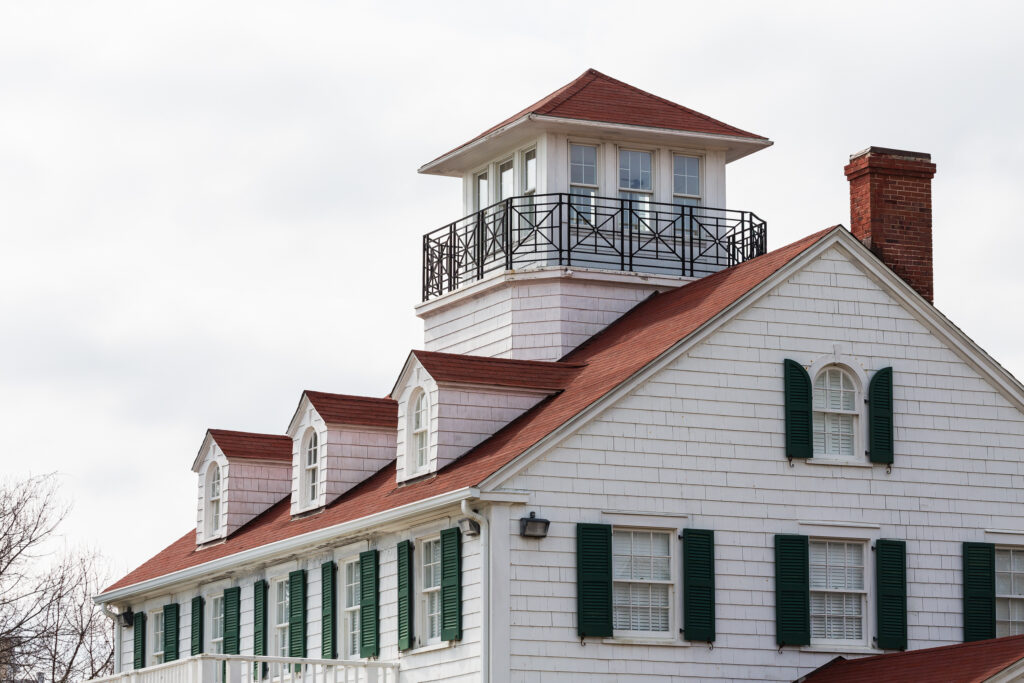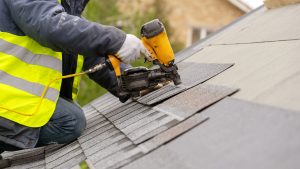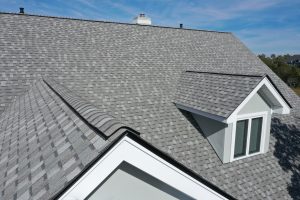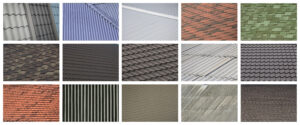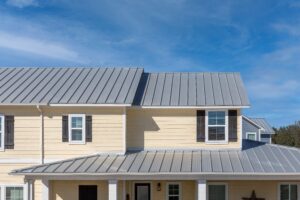
*Updated August 8th, 2025
Coastal living comes with its fair share of perks – the salty breeze, sandy beaches, and picturesque sunsets. However, the same elements that make beachfront properties so desirable can also wreak havoc on your home, especially your roof. High winds, salt air, humidity, and intense storms pose unique challenges that demand careful consideration when selecting a roofing material.
Whether you’re building a new home or replacing an old roof, read on to discover the perfect roofing solution for your coastal home.
Understanding the Unique Challenges of Coastal Climates
Before looking into the specific roofing materials, let’s take a moment to understand why choosing the right one is so important for coastal homes.
- High Winds: Coastal areas are prone to strong winds, especially during hurricanes and tropical storms. Your roof must be able to withstand these powerful gusts without lifting, tearing, or blowing away.
- Salt Air: The salty ocean air can be corrosive to certain materials, causing them to deteriorate faster than they would in inland areas.
- Humidity: High humidity levels can lead to moisture buildup, which can cause rot, mold, and other damage to your roof and attic.
- Storms: Coastal homes are more likely to experience severe storms, including heavy rain, hail, and even flying debris. Your roof must be able to withstand these impacts without cracking, denting, or leaking.
With these challenges in mind, let’s explore the top roofing materials that are best suited for coastal homes.
Top Roofing Materials for Coastal Homes
1. Metal Roofing
Metal roofing is one of the top choices for coastal homes. Here are the top reasons why:
- Durability: Metal roofs are incredibly durable and can withstand hurricane-force winds up to 140 mph. They are also resistant to corrosion, making them an ideal choice for homes near the ocean.
- Energy Efficiency: Metal roofs reflect sunlight, which can help keep your home cooler and reduce your energy bills. This is especially important in coastal areas where temperatures can soar during the summer months.
- Lightweight: Despite their strength, metal roofs are relatively lightweight, which means they won’t put too much strain on your home’s structure.
The best metals for coastal homes are aluminum, copper, and galvanized steel. Aluminum is naturally resistant to corrosion and is a popular choice for homes near the beach. Copper is another great option, as it develops a protective patina over time that helps it resist the elements. Galvanized steel with a zinc coating is an affordable choice that can last 60+ years with proper maintenance.
2. Clay and Concrete Tiles
Clay and concrete tiles are another popular choice for coastal homes, particularly those with Mediterranean or Spanish-inspired architecture. Here’s what makes them a great option:
- Durability: Clay and concrete tiles are extremely durable and can last for decades with proper care. They are naturally resistant to water and salt air, making them an ideal choice for coastal climates.
- Fire Resistance: These tiles are also fire-resistant, which can provide an extra layer of protection for your home.
- Aesthetics: Clay and concrete tiles come in a wide range of colors and styles, allowing you to customize the look of your home to suit your taste.
3. Slate Tiles
If you’re looking for a roofing material that looks stylish and also long-lasting, slate tiles may be the perfect choice for your coastal home. Here’s why:
- Longevity: Slate is one of the most durable roofing materials available, with a lifespan of 100 years or more. This means you may never have to replace your roof again.
- Low Maintenance: Slate tiles require very little maintenance, making them a great choice for homeowners who want a hassle-free roofing option.
- Fire Resistance: Like clay and concrete tiles, slate is also fire-resistant, providing an extra layer of protection for your home.
4. Synthetic Composite Tiles
If you love the look of slate, wood, or clay tiles but want a more affordable and lightweight option, synthetic composite tiles may be the perfect choice for your coastal home. Here’s what you need to know:
- Durability: Composite tiles are designed to withstand harsh coastal weather conditions, with high wind and impact resistance ratings. They can last 50 years or more with proper maintenance.
- Lightweight: Unlike natural slate or clay tiles, composite tiles are much lighter, which means they won’t put too much strain on your home’s structure.
- Aesthetics: Composite tiles can mimic the look of more expensive materials like slate, wood, or clay, giving you the style you want at a more affordable price point.
5. Architectural Asphalt Shingles
If you’re looking for a more budget-friendly option for your coastal home, architectural asphalt shingles may be the way to go. While they may not last as long as some other materials, they can still provide reliable protection for your home. Here’s what you need to know:
- Affordability: Architectural asphalt shingles are one of the most affordable roofing options on the market, making them a popular choice for homeowners on a budget.
- Style Options: These shingles come in a wide range of colors and styles, allowing you to customize the look of your home.
- Durability: While not as long-lasting as metal or tile, architectural asphalt shingles are still a durable option for coastal homes. Look for shingles with high wind, algae, and impact resistance ratings for the best performance.
Factors to Consider When Choosing a Coastal Roofing Material
Now that we’ve explored the top roofing materials for coastal homes, let’s take a look at some of the key factors you should consider when making your decision:
- Durability and Wind Resistance: Look for materials with high wind resistance ratings to ensure your roof can withstand the strong gusts common in coastal areas.
- Energy Efficiency: Choose a material that reflects sunlight to help keep your home cooler and reduce your energy bills.
- Weight and Structural Support: Consider the weight of the material and whether your home will require additional structural support to bear the load.
- Cost: Roofing materials vary widely in price, so consider your budget when making your decision. Keep in mind that a higher upfront cost may be offset by a longer lifespan and lower maintenance costs over time.
- Aesthetics: Choose a material that complements the style of your home and enhances its curb appeal.
- Local Building Codes: Make sure your chosen material complies with local building codes and regulations for coastal areas.
Conclusion
Choosing the right roofing material for your coastal home is a big decision, but by weighing the pros and cons of each option and considering your specific needs and budget, you can make an informed choice that will provide lasting protection and beauty for your home.
By investing in the right roofing material for your coastal home, you can enjoy peace of mind knowing that your home is protected from the harsh elements.
FAQs
What is the most durable roofing material for homes near the ocean?
Metal roofing, particularly aluminum, copper, and galvanized steel, is one of the most durable options for coastal homes. These materials can withstand high winds, resist corrosion from salt air, and last 60+ years with proper maintenance.
Are metal roofs noisy during rainstorms?
Metal roofs can be noisier than some other materials during heavy rain or hail. However, this can be mitigated with proper insulation and sound-deadening underlayment.
How long do clay tile roofs typically last?
Clay tile roofs are extremely durable and can last 50-100 years or more with proper maintenance. They are naturally resistant to water, salt air, and fire, making them an excellent choice for coastal homes.
What is the most affordable roofing option for beach houses?
Architectural asphalt shingles are one of the most affordable roofing options for coastal homes. While they may not last as long as metal or tile, they can still provide reliable protection and come in a wide range of colors and styles to suit your home’s aesthetic.
Can solar panels be installed on these top coastal roofing materials?
Yes, solar panels can be installed on most roofing materials, including metal, tile, and asphalt shingles. However, the installation process may vary depending on the material, so it’s important to work with a qualified solar installer who has experience with your chosen roofing type.
Additional Roofing Resources

Anna has over six years of experience in the home services and journalism industries and serves as the Content Manager at MyHomePros.com, specializing in making complex home improvement topics like HVAC, roofing, and plumbing accessible to all. With a bachelor’s degree in journalism from Auburn University, she excels in crafting localized, comprehensive guides that cater to homeowners’ unique needs. Living on both coasts of the United States has equipped her with a distinctive perspective, fueling her passion for turning any house into a cherished home through informed, personalized decision-making.
Connect with top-rated local contractors who can help you with siding, roofing, HVAC, windows, and more. Get free quotes from verified professionals in your area today.

